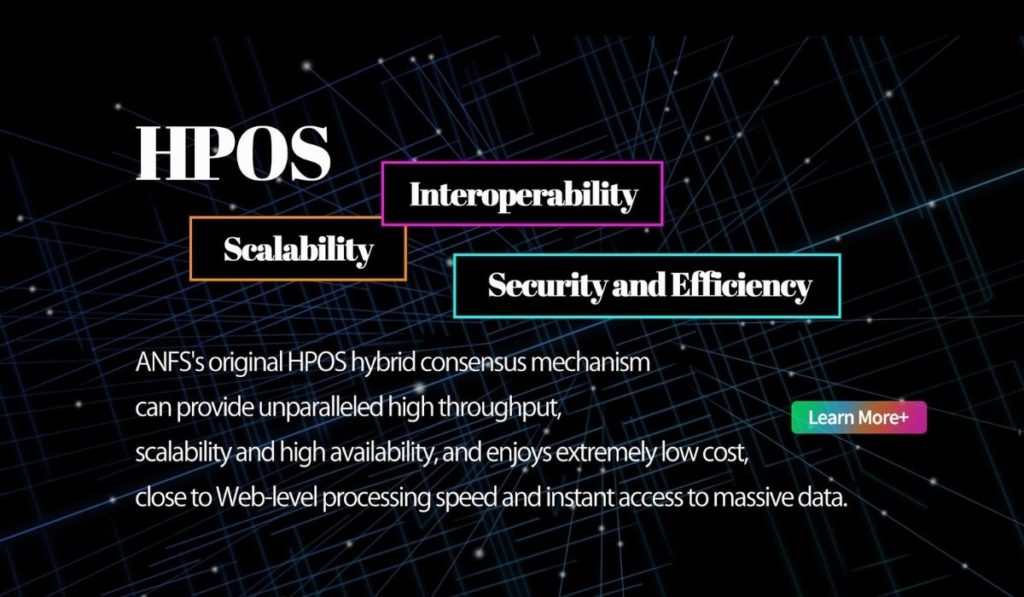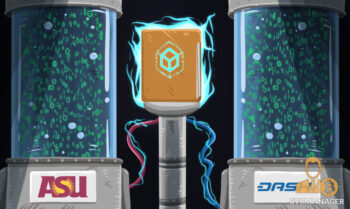
2023-11-13 12:48 |
Blockchain has become notorious for its limitations in terms of transaction throughput and scalability. Because these networks add data to the blockchain in blocks of a fixed, maximum size, they can only process a limited number of transactions per second. For decentralized applications and Web3 games that demand low latencies and frequent interactions, these limitations can be crippling.
Rollups have emerged as one of the most promising solutions to this problem. They record transactions off-chain and only commit them to the blockchain in bulk, ensuring many more can be processed at the same time. In this way, Rollups improve the scalability of blockchains.
What Are Rollups?Rollups address the blockchain’s scalability problem by offloading transactions onto a second, higher network layer rather than processing them all on the main chain. Rollups are Layer-2 protocols that sit on top of an existing network such as Ethereum, recording summaries of transactions as they’re performed. Rollups then take batches of transactions and record them onto the main blockchain with minimal on-chain data, in order to record the status updates that result from those transactions, without overwhelming the network.
Rollups come in two main flavors. First, there are Optimistic Rollips, which assume transactions are legitimate until proven otherwise. They operate with a “challenge period” during which anyone is able to submit that a rollup transaction is invalid. If no challenges are submitted during this period, the network will then assume the transactions are valid and process them on the main blockchain.
The disadvantage of this approach is that users are unable to withdraw their funds immediately, and must wait until the challenge period has expired.
To overcome this limitation, ZK Rollups use a cryptographic technique called zero-knowledge proofs in order to demonstrate that its state updates are valid. ZK-proofs, as they’re known, make it possible to prove a transaction is valid without revealing the full details about that transaction. These proofs mean it’s possible to validate an entire batch of transactions without accessing the complete transaction data on-chain. Due to this, there’s no need for a challenge period, meaning users can withdraw their funds immediately.
There are a number of dedicated Rollup platforms available for developers to access, including Starknet and zkSync. Developers can build on these L2 platforms to record their transactions off-chain, enabling their dApps to scale with ease.
ZK Rollup FrameworksThere are limitations to building on an existing ZK Rollup platform. For instance, the developer has no say in things such as the transaction structure, and the rate at which they’re verified on-chain, and these factors may not fit with the specific needs of their dApp. Additionally, existing ZK Rollapp platforms still face limits on the number of transactions they can process, even if these limits are far higher than the underlying L1.
To get around this, developers can build their own ZK Rollup L2 using frameworks such as Arbitrum Orbit, Rollkit, and OP Stack, which provide all the tools needed to do this. Because ZK Rollups are implemented using open-source smart contracts, they can be modified to create a custom ZK Rollup that best meets the needs of their application.
On the downside, these Rollup frameworks are not easy to use. Developers must have deep technical knowledge of the smart contract programming language in order to modify the smart contracts that govern their Rollups.
A second problem with ZK-Rollups is that they require diverse hardware resources, including ZK-proof computational power, data storage and packaging nodes. The costs of maintaining these hardware resources can quickly add up, meaning ZK Rollups are an inappropriate solution for scaling many kinds of dApps.
ZK Rollups-as-a-ServiceThe complexity of building customized ZK Rollup layers is unfortunate because they have shown themselves to be one of the best solutions for blockchain scaling in terms of speed and security. Luckily, the industry has responded to this with a fresh concept known as ZK Rollups-as-a-Service, or ZK-RaaS, which handles many of the complexities involved in creating and customizing a ZK Rollup L2. Using ZK-RaaS platforms, developers are free to focus on customizing essential features such as payment fees, data availability and transaction fees, without worrying about the complexity of doing this themselves.
One of the most notable pioneers of ZK-RaaS is Lumoz, which recently rebranded from Opside. It has created a hybrid Proof-of-Work/Proof-of-Stake network that facilitates ZK-proof mining and enables developers to quickly generate a customized zkEVM L2 chain in just a few clicks.
One of the advantages of Lumoz is that its network handles all of the processing requirements, incentivizing a huge community of miners to provide the computational power necessary to run its zkEVMs. The main objective of Lumoz is to encourage the wider adoption of ZK Rollups by making them as simple as possible to deploy. It enables developers to create and deploy a zkEVM across multiple chains.
ZK-RaaS AdvantagesZK-RaaS makes it possible for any dApp to operate its own Rollup network to address scalability challenges. With their own ZK Rollup, dApps can process many more transactions than would be possible on the L1 network or even on a shared ZK Rollup layer, where they are forced to compete with other dApps.
This means that dApp developers can offer their users almost instantaneous transaction processing times. With ZK-RaaS, developers have full control of parameters such as the frequency at which batches of transactions are written to the blockchain and confirmed.
Another benefit is that developers are free to create their own fee structures, balancing this against the frequency at which transactions are processed. The more transactions that are bundled together as one, the cheaper the transaction costs will be. This provides a lot of flexibility to dApps that may not need immediate transaction processing, enabling them to entice users with lower costs.
Perhaps the biggest advantage of all is that dApps can continue to take advantage of Ethereum’s strong security. While many dApp developers are building atop alternative, more scalable blockchain networks, those L1s cannot match Ethereum’s level of security. By using a ZK-RaaS on Ethereum, dApps can be built atop the most secure smart contract blockchain in existence. And it goes without saying that developers don’t require specialist skills to do any of this, as they instead rely on third-party expertise.
ZK Rollups Are Ready For Prime TimeZK Rollups are one of the most promising scalability solutions around for blockchain networks, but the concept has not yet been widely adopted due to the complexity of creating them. With ZK-RaaS now reaching maturity, it has never been easier to implement ZK Rollups. Developers can build a fully customized scaling solution in a matter of minutes, and they can do so at a low cost as there’s no need to concern themselves with hardware maintenance.
origin »Bitcoin price in Telegram @btc_price_every_hour
High Performance Blockchain (HPB) íà Currencies.ru
|
|























